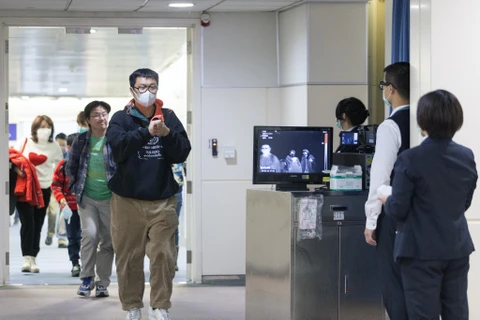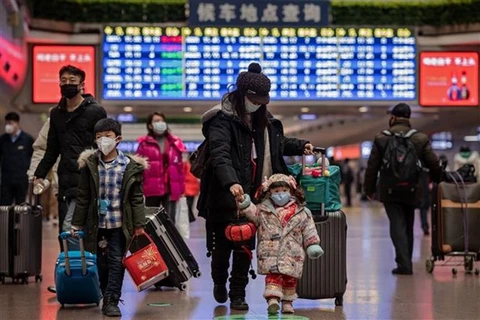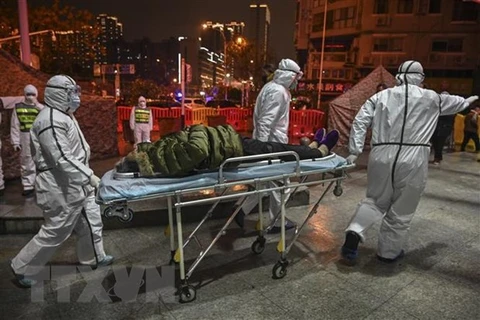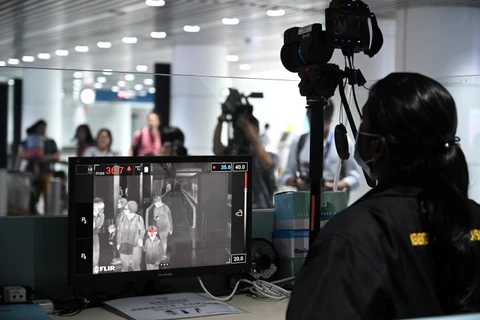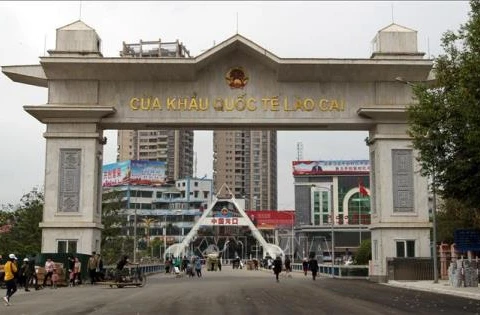Hanoi (VNA) – Southeast Asian nations have taken precautionary measures to contain the spread of the novel coronavirus as the outbreak is worsening in China and elsewhere.
After an urgent meeting on January 26, Malaysian Deputy Prime Minister Azizah Wan Ismail affirmed that the coronavirus in Malaysia was still under control. The country’s Health Ministry was cooperating closely with the World Health Organisation (WHO) and the health ministries of neighbouring countries on current developments.
Malaysia has the capacity to deal with the 2019 n-CoV situation, she said, adding that Malaysians need to closely follow instructions by medical agencies and not to spread untrue or unverified information related to the disease.
The Malaysian Health Ministry has also presented preparatory measures and responses in the face of the spread of the disease cluster, including detailed screening at all international entry points and closely monitoring at all coordinating levels, she said.
Meanwhile, Health Minister of Cambodia Mam Bunheng confirmed that the country has reported no n-CoV infection case so far.
Cambodia’s relevant agencies have bolstered preventive measures at airports and border gates.
For its part, Singapore announced a series of precautionary measures on January 27 to contain the spread of the novel virus.
Students and teachers travelling to China recently are asked to stay at home for two weeks. Besides, people are advised to refrain from unnecessary travel to China, while passengers taking flights from China to Singapore will undergo thermal checks.
Singaporean Minister for Trade and Industry Chan Chun Sing said the country’s economy will definitely be impacted by the outbreak, with the tourism-related sectors being of immediate concern.
The government is considering support measures for hard-hit sectors like tourism which could include property tax, rebates and worker levy cuts, he added.
In Thailand, four C130 planes with medic teams have been put on standby in case the country decides to airlift its citizens from Wuhan.
Local media quoted Thai air force chief Maanat Wongwat as saying that the transport aircraft and medic teams are ready to take off to the Chinese city as soon as the government gives the green light to the evacuation plan.
Deputy PM of Thailand Prawit Wongsuwon on January 26 said the government was considering a plan to help Thai citizens in Wuhan, the epicentre of the n-CoV outbreak.
A total of 64 Thais, including 54 students and 10 workers, are in the capital of China’s Hubei province, according to the Thai Foreign Ministry.
Thailand’s evacuation plan will be clearer when the Rapid Response Centre comprising of officials from several agencies holds talks on January 27.
At eight, Thailand has the highest number of infected people after China.
By the end of January 26, 80 deaths from the nCoV-caused disease and 2,744 infected cases had been reported in China.
The virus has spread to more than 10 countries around the world./.
After an urgent meeting on January 26, Malaysian Deputy Prime Minister Azizah Wan Ismail affirmed that the coronavirus in Malaysia was still under control. The country’s Health Ministry was cooperating closely with the World Health Organisation (WHO) and the health ministries of neighbouring countries on current developments.
Malaysia has the capacity to deal with the 2019 n-CoV situation, she said, adding that Malaysians need to closely follow instructions by medical agencies and not to spread untrue or unverified information related to the disease.
The Malaysian Health Ministry has also presented preparatory measures and responses in the face of the spread of the disease cluster, including detailed screening at all international entry points and closely monitoring at all coordinating levels, she said.
Meanwhile, Health Minister of Cambodia Mam Bunheng confirmed that the country has reported no n-CoV infection case so far.
Cambodia’s relevant agencies have bolstered preventive measures at airports and border gates.
For its part, Singapore announced a series of precautionary measures on January 27 to contain the spread of the novel virus.
Students and teachers travelling to China recently are asked to stay at home for two weeks. Besides, people are advised to refrain from unnecessary travel to China, while passengers taking flights from China to Singapore will undergo thermal checks.
Singaporean Minister for Trade and Industry Chan Chun Sing said the country’s economy will definitely be impacted by the outbreak, with the tourism-related sectors being of immediate concern.
The government is considering support measures for hard-hit sectors like tourism which could include property tax, rebates and worker levy cuts, he added.
In Thailand, four C130 planes with medic teams have been put on standby in case the country decides to airlift its citizens from Wuhan.
Local media quoted Thai air force chief Maanat Wongwat as saying that the transport aircraft and medic teams are ready to take off to the Chinese city as soon as the government gives the green light to the evacuation plan.
Deputy PM of Thailand Prawit Wongsuwon on January 26 said the government was considering a plan to help Thai citizens in Wuhan, the epicentre of the n-CoV outbreak.
A total of 64 Thais, including 54 students and 10 workers, are in the capital of China’s Hubei province, according to the Thai Foreign Ministry.
Thailand’s evacuation plan will be clearer when the Rapid Response Centre comprising of officials from several agencies holds talks on January 27.
At eight, Thailand has the highest number of infected people after China.
By the end of January 26, 80 deaths from the nCoV-caused disease and 2,744 infected cases had been reported in China.
The virus has spread to more than 10 countries around the world./.
VNA

